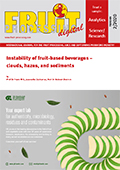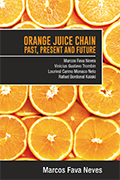Daily Cocoa Flavanol Consumption Shown To Improve Cognitive Function In Older Adults
A study conducted by researchers from the University of L’Aquila in Italy and Mars, Incorporated provides compelling new evidence that…
A study conducted by researchers from the University of L'Aquila in Italy and Mars, Incorporated provides compelling new evidence that the regular consumption of dietary cocoa flavanols may improve cognitive function in elderly subjects with early memory decline. Just published online in the journal Hypertension, this current study significantly advances understanding of the benefits of flavanols by specifically exploring the impact of regular cocoa flavanol consumption on cognitive function in a population with Mild Cognitive Impairment (MCI). Previous research has suggested that the benefits of cocoa flavanols could extend to the brain. However, these studies were either only short-term or did not demonstrate a consistent cognitive benefit. This unique study addresses this gap and provides important insights into the possibility of slowing or even reversing cognitive declines associated with aging through consumption of these natural compounds.
Flavanols are a group of natural compounds that are particularly abundant in cocoa. A significant body of published research has shown that consumption of cocoa flavanols helps support healthy circulation and cardiovascular health.
"For the first time, regular cocoa flavanol consumption has been shown to positively affect cognitive function in older adults with early memory decline," commented study author Dr Giovambattista Desideri, Director of the Geriatric Division of the University of L'Aquila. "Importantly, the improvements in cognitive function were seen over a relatively short period of time; and, while further research is required to confirm and expand on these findings, this provides encouraging evidence that regular consumption of cocoa flavanols might be effective in improving cognitive function in elderly subjects with Mild Cognitive Impairment. The findings provide promising indications that the development of novel dietary approaches for improving health as we age – especially cognitive health – is a real possibility."









